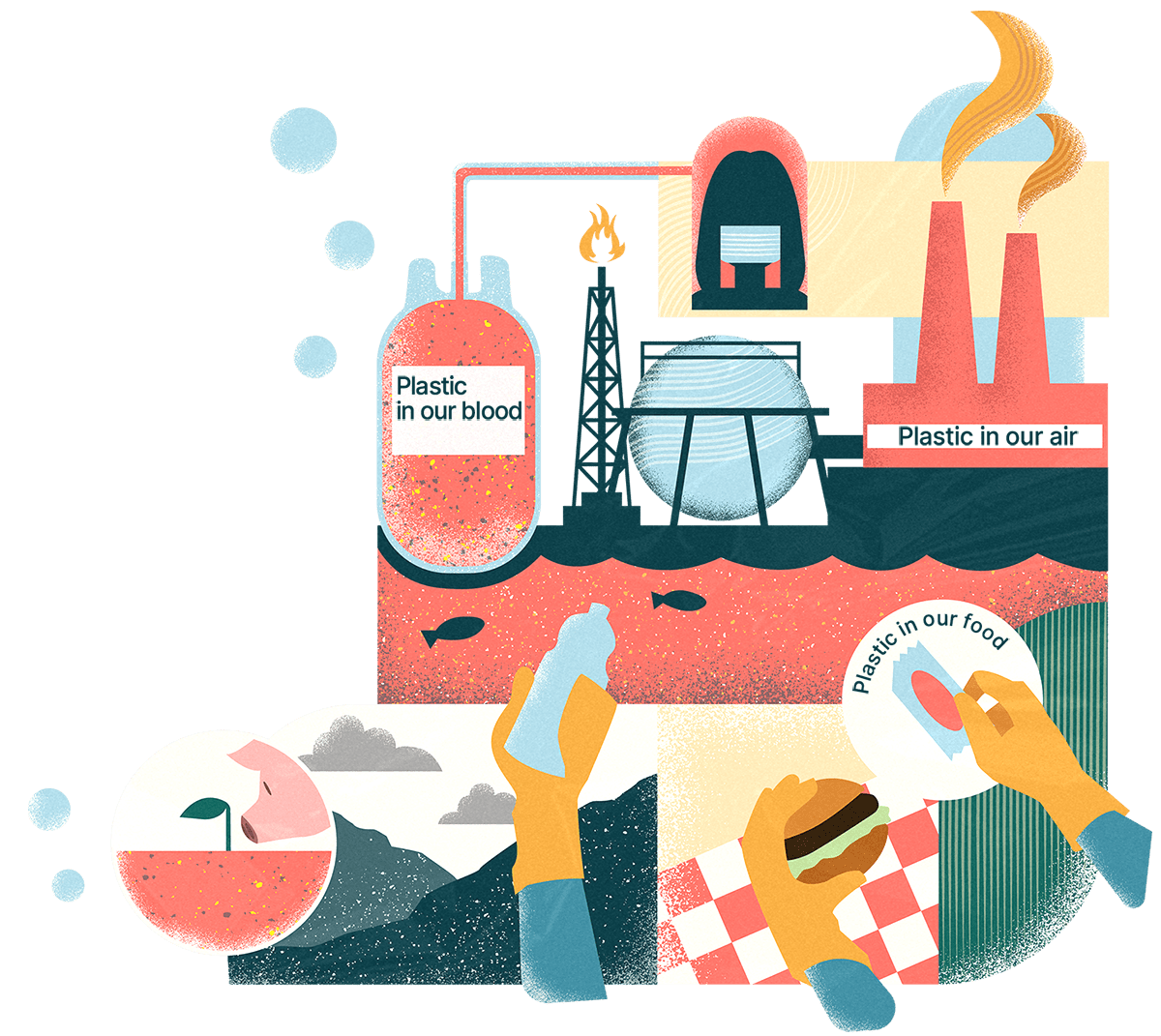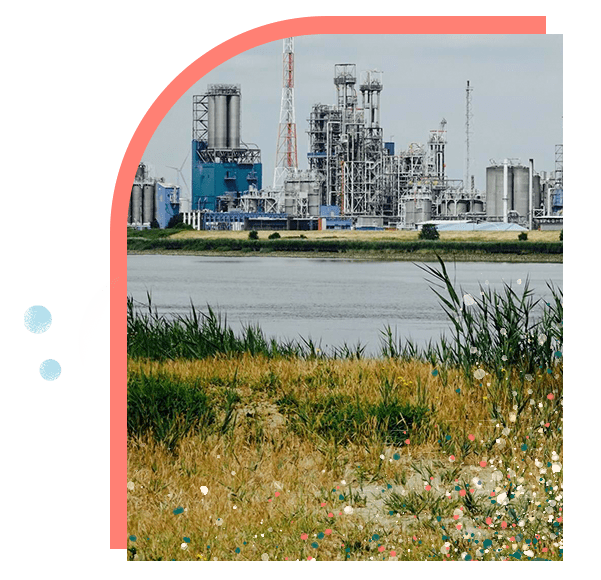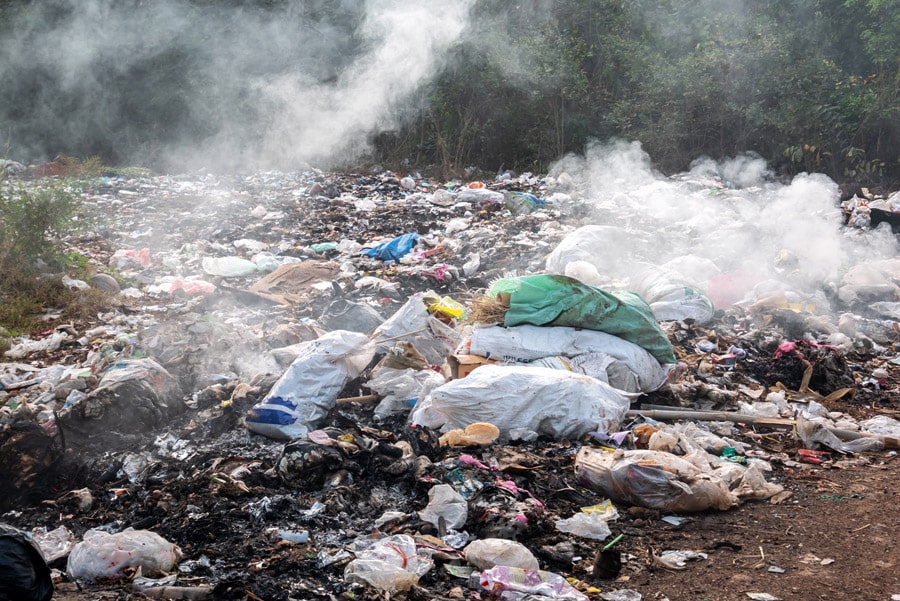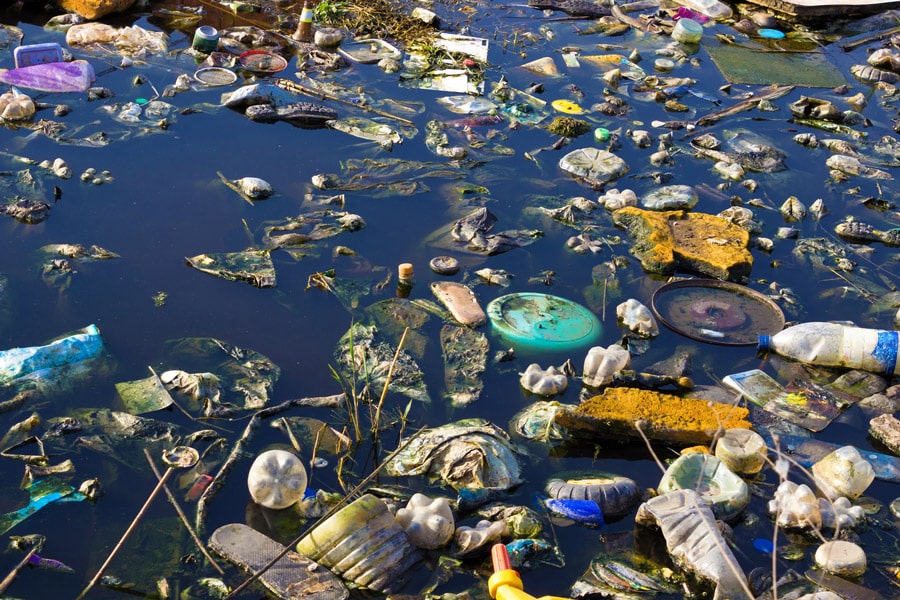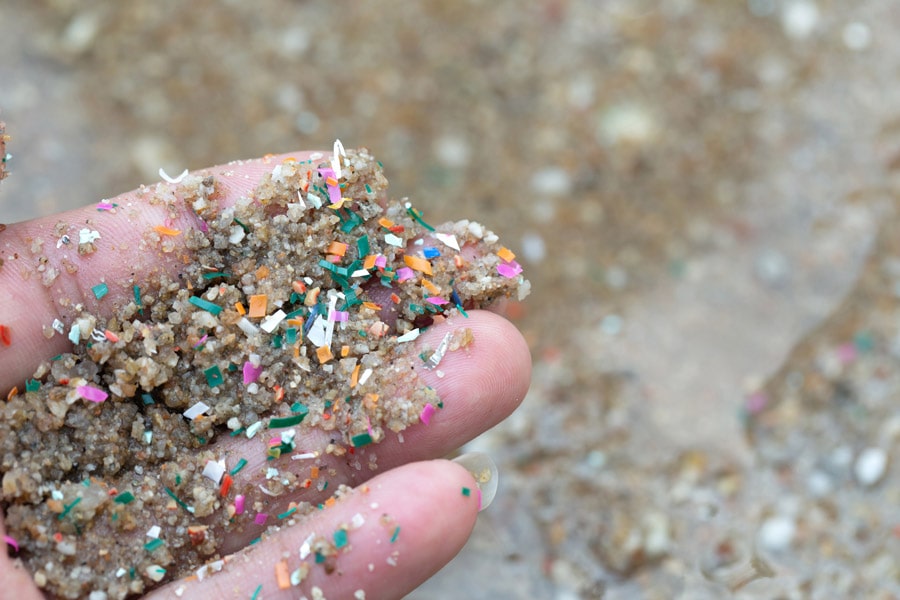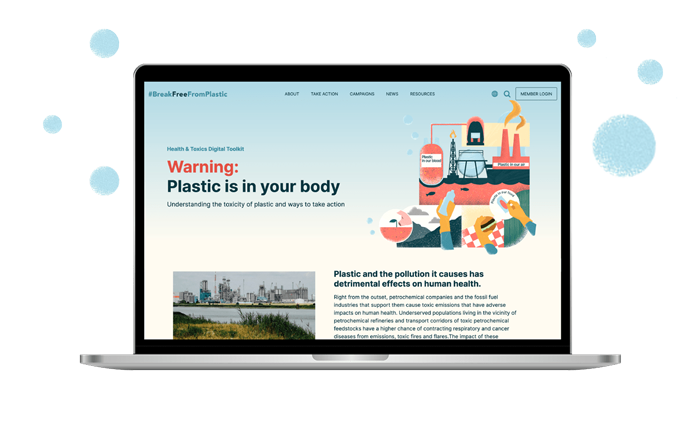Introduction of toxic chemicals
The plastics industry introduces toxic chemicals into our economies, ecosystems and our bodies through plastic.
Plastics are more than a material
Plastics are more than just single materials. They are composed of thousands of different (often hazardous) chemicals which are intentionally, or sometimes unintentionally added.
The building blocks of plastic materials are toxic, with additional harmful additives also added. The lifecycle of plastics creates serious impacts that affect the enjoyment of fundamental human rights such as the right to health, the right to life, the right to a clean and healthy environment, as well as worker rights.
Plastics are not as “clean” and sterile as the plastics industry claims. They are vectors for toxic chemicals which impact humans at all stages of their endless existence.
Humans are exposed to chemicals and plastic particles through various routes, including ingestion, inhalation and direct skin contact. The chemicals leached from these plastic particles can disrupt endocrine (hormonal) functions, lead to various types of cancer, impair organ function, and disrupt development in children, right from the embryo stage.
Plastics are in our bodies
Plastics are in our bodies. When plastics end up in the environment (ocean, land, air, fresh waterways) they break up into particles and the toxic chemicals they contain enter ecosystems and human food chains where they accumulate and remain for prolonged periods of time. Microplastics have been found in human blood, lungs, organs, placentas, and breast milk.
Plastic goods pose hazards to consumers
When consumers eat from, drink from and otherwise use plastic products, toxic additives can enter their bodies. These additives are linked to a wide variety of health effects including cancer, endocrine (hormone) disruption, infertility, diabetes as well as reproductive and developmental harm.
Plastics are a safety concern
Safety is a concern across the lifecycle of plastics. Recycling processes create pathways through which humans can be exposed to toxic chemicals. Recycled plastics can even contain hazardous chemicals at levels higher than those found in virgin plastic materials.
“Chemical recycling” is unjust
Many of the same communities targeted by the fossil fuel and plastic production industry are now also being targeted for so-called “chemical recycling” facilities, reinforcing the health injustices caused by its pollution.
Plastic is a human rights and social justice issue
Plastic pollution is a human rights and social justice issue which particularly affects lower economic populations, Indigenous peoples, people of color, rural and coastal communities, and communities across the Global South. They bear the uneven costs of plastic pollution, waste and production and are often the ones with lowest access to resources to deal with the impacts of this pollution.
Vulnerable populations are most affected
Vulnerable populations (including infants, children, pregnant women) are most at-risk of health impacts from plastic pollution.
Responsibility lies with plastic producers
The responsibility for reducing and remediating plastic pollution and the health impacts of plastics on people and the environment must be put on plastic producers, the petrochemical industry and the fossil fuel industry.
Responsibility does not lie with the individual
Plastic producers and the fossil fuel industry, aided by government subsidies and other forms of support, have put the responsibility of solving the problem on individual behavior change. This tactic has enabled business as usual with continued production, pollution and exploitation of communities most impacted by plastics and fossil fuels.
“Chemical recycling” causes harm to health
Most recently, the plastic industry has pushed for so-called “chemical recycling” or “advanced recycling” to tackle plastic pollution. They are extremely toxic and carbon-intensive processes which dissolve plastic into its toxic petrochemical components. In most cases, these components are then burned, causing further emissions. This largely unproven technology is highly polluting and undermines real solutions to plastic pollution.
To prevent further harm caused by plastic pollution, more effort is needed to identify safer and more sustainable alternatives to plastic materials.
Design toxic chemicals out
Toxic chemicals must be designed out of plastics as much as possible.
Remove most toxic chemicals from circulation
Plastics containing the most toxic chemicals must be removed from circulation in the circular economy to avoid uncontrolled exposure.
Plastics threaten human health
While scientists and researchers are still working to understand the range of health effects caused by plastics, there is already overwhelming evidence that plastics threaten environmental and human health. Governments should take immediate action and enact policies to address the health risks posed by the entire life cycle of plastics.
Governments must hold industry accountable
Governments can and must hold the plastics and petrochemical industries accountable for the health impacts caused along the plastic lifecycle through regulation, transparency and financial accountability.
Reduce plastic production
Production of plastic must be drastically diminished and chemical ingredient transparency and accurate labeling must disclose toxic content of plastics.
Just solutions must focus on reuse
We need just solutions focused on non-toxic refill, reuse systems which replace use of plastics, especially where they are most easily eliminated (i.e. single-use plastics).
Microplastics are an emerging global health threat. Since there is already so much plastic in the environment, the only true way to prevent further exposure to microplastics is to reduce and ultimately eliminate plastic production.

